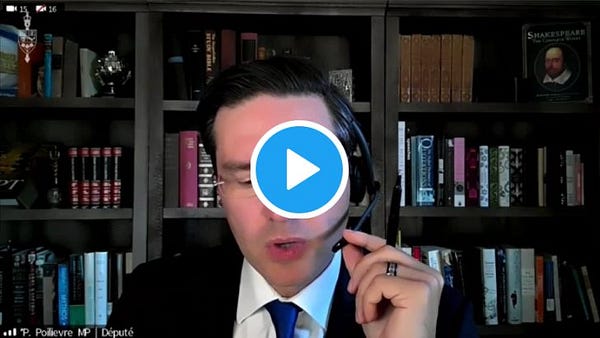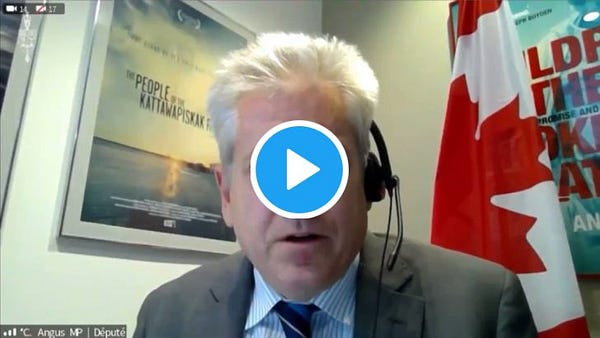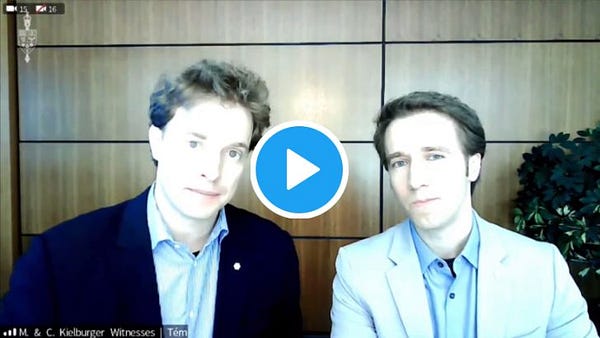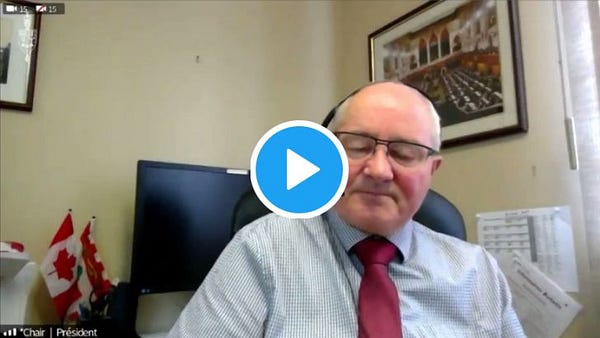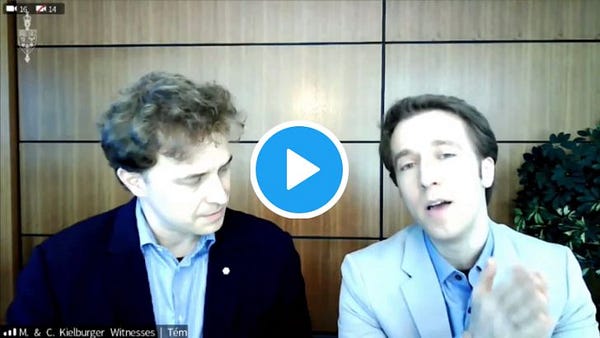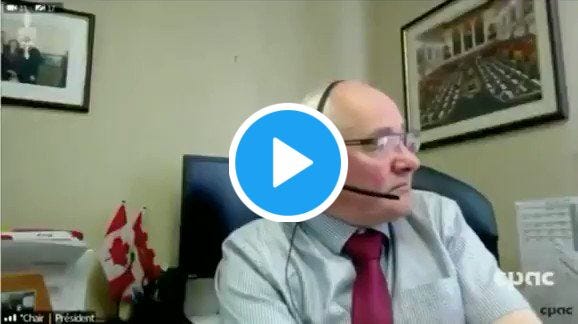Did you miss getting this in your inbox? You’re too busy to hunt for the good stuff. Subscribe!
Marc and Craig Kielburger testified at the Standing Committee on Finance yesterday.
It did not go well.
The WE founders surprised everyone by offering themselves up for four hours of questions. They probably thought they had a good story to tell — one of benevolent intentions, heroicism, and service.
The problem for them was that a sheltered life of praise and back patting made them unprepared for a brutal wall of skepticism from Parliament’s most seasoned committee pros — skepticism about how close to a billion public dollars were earmarked to be rused into the accounts of an organization whose founders were way too close to Prime Minister Justin Trudeau and his family.
The tactics
The Kielburgers were coached. This is a common practice for any person or any organization who has any experience with public relations.
Many PR firms offer committee coaching services and it would have been standard for such a firm to steer the Kielburgers through the process of delivering an opening statement, to helm the training sessions on how to be effusively polite to the committee, and to chart a course for them on tough questions, guiding them to safe harbour by broaden the context and expound on background.
Their Zoom image was terrible. The brothers shifted the colour balance, turned down the contrast, turned up the brightness and blew out the saturation. This had the effect of crushing the edges, blending each their faces into eery white blobs with eyes and hair.
Why did they do this? The standing theory is that the image and sound quality were so poor as to limit their use as clips in broadcast television.


The Kielburgers used the clock and the Chair. Though they were testifying for four hours, this gave them the benefit of being more evasive and imprecise with their answers (“don’t worry, we have four hours,” the Liberal Chair kept explaining).
When committee members from the Conservative and NDP opposition would complain, the Chair explained that the brothers were being generous with their time.

The problems for the Kielburgers
Serious questions were raised about the Conflict of Interest Act, the Lobbying Act, and the brothers’ use of private investigators to look into a media personality and a journalist. NDP MP Charlie Angus broke this down quite well with his best disappointed father routine.
The byzantine network of organizations, companies, social enterprises, and charities also only began to become clear for committee members.
We learned that the brothers had set up an organization with no assets or staff to hold the hundreds of millions of dollars from the government in order to spin up activity for the Canada Student Service Grant.
Members repeatedly characterized this as a “shell company”, “shell organization”, or “shell foundation” — this to the brothers’ concern.
For their part, the brothers explained that such a set-up was necessary to limit liabilty for both themselves and the rest of their WE network. Onboarding tens of thousands of student volunteers during a pandemic carries certain risk and setting up a separate corporation can compartmentalize and segregate that risk from the rest of their WE universe should they face a lawsuit.
However, the perhaps too clever network of corporations, charities, and social enterprises that the brothers and their parents had set up over the years, one to hold Toronto real estate, others to build wells in Africa, and most confusingly and vaguely named “We” in some way — will likely need another four hours of testimony and a number of audits just to sort it all out.

The brothers also seemed to suggest that for-profit dividends of some companies were donated back to the charity while Conservative MP Pierre Poilievre pointed out that this hardly precludes them from feather bedding via salaries and expense renumeration.
The brothers told the committee that Canada’s regulatory regime surrounding charities was too restrictive for their innovative model that they implemented via social enterprise — a type of corporate structure used more extensively in Europe.
That’s an interesting point of public policy to consider. Perhaps they should have hired a lobbyist.
An uglier side was also on display.
By hour four, the clearly-exhausted brothers let the their unctuous mask slip and started questioning the motives and competance of some committee members, using the children as a shield.
A harsher light was also cast upon the Kielbrother tactic of hiring private investigators to look into media personalities and journalists like Jaren Kerr who has done extensive work on the WE file.
The brothers filibustered on the question and offered moral outrage about one of the targets of those alleged operations.
The problems for Justin Trudeau
While the Kielburgers insisted that their hiring of Trudeau’s family had everything to do with their lived experience and independent public statures and nothing to do with their proximity to the head of Canada’s government, nobody was buying it.
Committee members pointed out that that there are many Canadians who aren’t in the Prime Minister’s immediate family who could speak to mental health — as Trudeau’s mom was ostensibly hired for hundreds of thousands of dollars to do.
And why did they hire Alexandre “Sasha” Trudeau?
His environmental and filmmaking bonafides, of course. Oh, and he was a good replacement for when Margaret Trudeau wasn’t available.

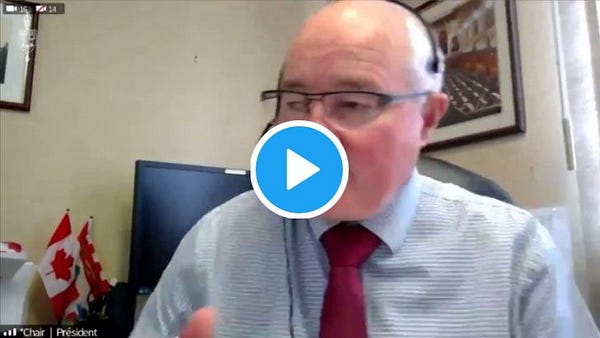
“Not very helpful, guys!” — Justin Trudeau, probably.
As Charlie Angus pointed out, the Kielburgers have indeed placed Justin Trudeau in yet another conflict of interest ethics scandal.
The brothers also broke down additional expenses for Margaret Trudeau while Brian Lilley helpfully summarized. Trudeau’s mother seems to have received almost $168,000 more than previously reported.


Bigger questions to be answered
Justin Trudeau testifies before committee tomorrow and must now answer for the conflicts of interest raised and his government’s brazen plan to move hundreds of millions of dollars into the bank account of a no-asset-no-staff-don’t-call-it-a-shell-corporation company during a national crisis.
Given the performance of the Kielburgers yesterday, Canadians will also have questions about the trust and competence Trudeau’s government placed in the brothers. Trudeau has tried to deflect to the non-partisan public service in the past, but this scandal has become too personal. A vacuum of leadership and personal responsibility will only compound these issues for this Kielbuddy.
Finally, Canadians should also be concerned about the core Liberal principle of growing the size of the government pot while outsourcing the functions of government to connected third parties.

But that’s a topic for another time.
Did you think this was this a good summary of the Kielburger testimony? You should share this post! It really helps me grow this newsletter.





